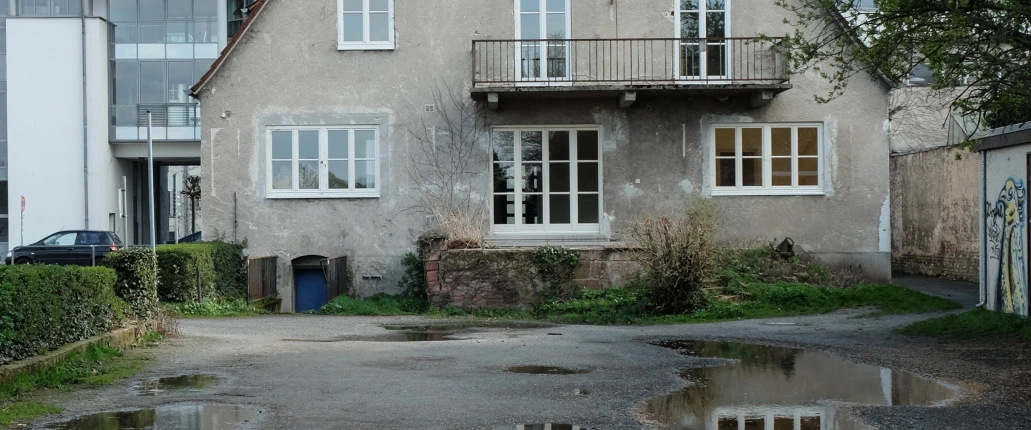What to Do Once You Identify Water Damage
Whether you notice visible signs of water damage or warning signals like an unexpected spike in your water bill, your main priority should be to take immediate steps to minimize the damage.
This means acting quickly and responsibly to prevent further damage. As a homeowner, your insurance policy requires you to take steps to reduce losses after a covered event to maintain your coverage.
If you don't take these steps, it could put your water damage claim at risk.
For instance, you may not receive full compensation for your loss, and your insurer might refuse to cover any additional damage if you fail to address the problem promptly.
Your insurance company may even deny your claim, arguing that they can't distinguish between the initial damage and any additional damage that occurred because you didn’t take timely action.
For example, if a pipe bursts, steps you can take to minimize water damage include:
- Turn off the water supply immediately.
- Move furniture and other items to prevent further damage.
- Take out wet items from the area and begin drying them.
- If it’s safe, use a wet vacuum to remove standing water.
- Open windows to reduce humidity and speed up drying.
- Place a bucket or tarp under any active leaks.
- Use towels to dry floors, cabinets, or other wet surfaces.
If you notice warning signs of water damage or are unsure of the cause, it’s best to consult a professional. Start by contacting a leak detection specialist, then follow up with a licensed plumber.

What is the Difference Between Remediation and Restoration?
People often confuse remediation with restoration, but they’re not the same. Think of it like this:
- Remediationdeals with the emergency. It stops the spread, dries things out, and handles health or safety risks like mold or contaminated water.
- Restorationcomes after. It’s the rebuilding phase of repairing walls, replacing flooring, and making your property look and feel the way it did before the damage.
In short, remediation tackles the mess and makes it safe. Restoration handles the repairs and cosmetic fixes.
When you file an insurance claim, your public adjuster plays an important role in both phases. They don’t just document the damage; they advocate on your behalf. They make sure nothing gets missed, and they fight for a fair and reasonable settlement that reflects everything it’ll take to return your property to its original state, not just patch it up.
Step 1: Contact a Leak Detection Specialist
Early signs of plumbing issues, like a slab leak, are often easy to miss because pipes are usually hidden behind walls, above ceilings, or underground. This makes it difficult to identify both the source and location of a leak that could lead to serious damage to your home.
Leak detection professionals use specialized equipment to pinpoint plumbing issues in your walls, ceilings, or beneath the floor. This non-invasive method allows them to locate leaks without digging or causing damage to your property.
Common leak detection methods include:
- Thermal imaging (which detects heat patterns) involves running hot water through the pipes and using thermal cameras to identify areas where hot water may be leaking from a damaged pipe.
- Ultrasonic technology sends a signal through the pipe, and a sensor detects any disruptions in the signal, helping to identify the exact location of the leak.
- Acoustic detection, one of the most commonly used methods, involves using specialized equipment to listen for sounds that indicate a leak—such as the hissing noise water makes when escaping from a high-pressure pipe.
Many leak detection companies also use video inspection tools, which are inserted into pipes—often through the toilet drain—to identify issues like cracks or other damage.
In certain situations, like a leaking air conditioning unit, it's best to contact an A/C specialist. Common reasons for A/C leaks include:
- Defective drip pans
- Clogged air filters
- Faulty condensate pumps
- Clogged condensate drain lines
- Frozen evaporator coils

Step 2: Get in Touch with a Licensed Plumber
Leak detection specialists are highly trained professionals, often with a plumbing background, who use specialized tools to locate hidden leaks. If the source of a leak isn’t obvious, a plumber will usually recommend contacting a leak detection expert.
After a leak detection specialist pinpoints the source of the problem, a plumber can carry out the necessary repairs to stop the leak. Plumbers also help assess the extent of the water damage, which is essential for both making proper repairs and supporting an insurance claim related to a covered event.
Questions to Ask Your Plumber Before You Hire Them
Are you licensed?
Always hire a licensed plumber with the proper skills and qualifications to ensure the job is done correctly.
Are you insured (also known as bonding)?
The plumber should have insurance to protect you from any damages or injuries that may occur during the installation or repair process.
When can you start and complete the job?
Ask the plumber about the expected duration of the job. If you need the work done by a certain deadline, make sure the plumber understands and agrees before hiring.
Can you give me a written quote or estimate?
A reputable plumber should be able to give you a written quote or estimate that clearly outlines the costs involved.
Whenever possible, get two or three quotes before choosing a plumber. Keep in mind that the lowest price isn’t always the best choice and could lead to higher costs over time.
How long have you been in business?
Plumbers with extensive experience are more likely to have the skills required to complete the job successfully and meet your expectations.
What are your specialties?
Do they specialize in the type of plumbing work you need, or have they handled similar projects before?
If your plumbing issue requires specialized expertise, hiring a plumber with only general experience may not be the best choice.
Can you provide me with references?
A good way to determine if a plumber is reliable and skilled is to contact some of their past clients. Reputable plumbers usually provide references upon request. You can also check online reviews on platforms like Google and Yelp.
Do you offer a guarantee?
Trustworthy plumbers will gladly provide a written guarantee if they are confident in their ability to resolve your plumbing issues.
Document the Process
After discovering water damage in your home, it’s common to focus on fixing the problem and overlook documenting the damage. However, waiting too long to file an insurance claim can make it difficult to provide a clear record of what happened.
This can make it harder and take longer to receive full compensation from your insurance company. For example, you might accidentally leave out important details in your claim or lack enough proof to support your account of the damage and the steps you took to reduce it.
Taking photos from the moment you notice water damage through the process of hiring a leak detection company and plumber can help support your claim. Be sure to keep invoices from any professionals you hire for your records.
It will offer a clear, step-by-step record of events as they occurred.

California Department of Insurance
Below are some extra tips and recommendations from the California Department of Insurance:
- Always address clear signs of water issues in your home promptly.
- Homeowners should quickly locate and stop leaks at their source.
- When water leaks into your property, moisture can build up and lead to mold growth. Mold can damage your property further and may pose health risks.
- If your property experiences sudden water damage, dry all affected areas and ensure proper air circulation to help speed up the drying process.
- If water damage from leaks has been ongoing, mold may have already formed. Trying to clean the mold yourself could spread spores, leading to further property damage or health risks.
How to Decide Whether You Should File an Insurance Claim
Before submitting an insurance claim for water damage, keep the following points in mind:

Your Insurance Coverage
Most homeowners insurance policies generally include coverage for water damage if it results from a sudden and accidental event that is covered by the policy.
However, homeowners insurance policies can vary, and not all offer the same level of coverage.
Be sure to review your policy to understand the details of your water damage coverage, as the terms, requirements, and limits can vary between policies.
For instance, standard homeowners insurance does not cover flood damage; a separate flood insurance policy is required for that type of protection.
Filing a claim for an event not covered by your policy can waste your time and resources, and may also lead your insurance provider to view you as a higher risk.
Your Deductible
Filing a claim for a covered event may not be practical if the cost is low or falls below your deductible. In these situations, it’s often more cost-effective to pay for the expenses yourself.
Homeowners insurance rates usually rise by 7% to 10% after a first claim, as insurers often reclassify you into a higher risk category.
Given this information, it's wise to carefully consider whether to file an insurance claim for minor water damage, as covering the cost yourself may be more economical in the long run.
When to Hire a Public Adjuster
When you file a claim for a covered event, your insurance company assigns an adjuster to handle it. The insurer pays for the adjuster and relies on them to protect the company's interests and help reduce its financial responsibility.
A public adjuster represents your interests and communicates directly with your insurance company's adjuster on your behalf.
As a general guideline, homeowners typically handle small and simple insurance claims on their own.
However, water damage claims can be complicated. If you're dealing with a large or complex claim—especially if your insurance company offers a low settlement—it's advisable to contact a public adjuster for support.
Keep in mind that a public adjuster can assist you only if the damage is caused by a covered event. It's important to identify the cause of the water damage and understand the extent of it, as confirmed by a plumber.
Benefits of Hiring a Public Adjuster
Here are some key benefits of hiring a public adjuster:
- Prioritizes Your Best Interests
Insurance adjusters usually have extensive experience handling water damage claims and represent the interests of your insurance company.
Hiring a public adjuster gives you someone who represents your interests and can help ensure you receive the compensation you're entitled to.
- Helps Simplify and Reduce Stress During the Claims Process
Handling a large or complex insurance claim on your own can be overwhelming, especially if you're unfamiliar with the process and it falls outside your usual experience.
Working with a trusted and experienced public adjuster can help you avoid unnecessary stress and complications during the claims process.
- Assist in Challenging an Unfair Settlement Offer
You're not obligated to accept the first settlement offer from your insurance company. If the offer seems too low, a public adjuster can help you negotiate for a more fair and accurate settlement.
- Helps You Save Time
Handling a major insurance claim on your own can take a lot of time and effort. Tasks like completing paperwork, attending meetings, and coordinating with contractors can quickly become overwhelming.
Bringing in a public adjuster to handle the process can save you a significant amount of time.
- More Cost-Effective Than Hiring an Attorney
Homeowners may assume that hiring an attorney is the best approach when an insurance claim becomes complicated. However, this can be costly and is usually only needed if legal action is the only remaining option.
Most attorneys charge a contingency fee of 33% to 40% of the settlement, which is much higher than the typical fee for a public adjuster. Attorneys often hire public adjusters themselves to help with claim evaluations.
- Represents You in Negotiations
Negotiating with insurance adjusters can be challenging, as they are well-versed in water damage claims and often come prepared with responses before discussions even begin.
It's generally not advisable to negotiate with an expert on a subject you're not fully familiar with.
A skilled public adjuster works with insurance companies and their adjusters daily. This experience puts them in a stronger position to negotiate a fair settlement on your behalf.
- Quicker Claim Process
An experienced and efficient public adjuster can help settle your claim more quickly. They understand the process and know how to handle it correctly from the start.
- Increased Chance of Receiving a Larger Settlement
A key benefit of hiring a public adjuster is the potential for a larger settlement. They have a deep understanding of insurance policies and the expertise needed to effectively negotiate with insurance adjusters.
- No Payment Needed Upfront
Public adjusters typically don't charge any upfront fees. They are only paid after you receive your insurance settlement—and if you don't get paid, neither do they.
Seven Helpful Tips for Choosing a Public Adjuster
Asking these questions can guide you in selecting the right public adjuster:
1. Is the public adjuster licensed to work in your state?
Each state has its regulations for public adjusters. If you're in California, make sure the public adjuster you hire is properly licensed.
2. How long have they been working as a public adjuster?
As with most professions, experience is highly valuable. While a newly licensed public adjuster may be capable of handling your claim, it's best to work with someone who has a proven track record—especially if your claim is large or complex.
3. Are they able to provide references from past clients?
Most public adjusters aim to present themselves professionally and are often willing to provide references or direct you to online reviews. It's a good idea to read these and get a better sense of who you may be working with.
At Excel Adjusters, we're proud to share testimonials from home and business owners we've helped recover from water damage. Their experiences reflect our commitment to securing fair insurance adjustments for every client.
4. What is their business location?
Some public adjusters take on claims outside their usual service area, which can make it harder for them to manage the claim effectively. Be sure the adjuster you hire can provide the level of service you need.
Excel Adjusters proudly serves clients across Southern California, including Los Angeles, Orange County, and surrounding areas such as Santa Monica, Beverly Hills, Irvine, Pasadena, Newport Beach, Torrance, Chino Hills, and Temecula.
5. Who will be handling your claim directly?
When choosing a public adjuster or firm, confirm who will be handling your claim directly. It's important to feel confident that the person managing your case is capable of meeting your needs and expectations.
6. Is the public adjuster pressuring you to make a decision?
Take your time when choosing a public adjuster and don't feel pressured to make a quick decision. If someone is pushing you to hire them immediately, it could be a warning sign. Make sure you feel comfortable and ask all the questions you need before committing.
7. Have you already received any payment from your insurance claim?
If your insurance company has already issued a payment before you hire the public adjuster, be sure to ask whether that will impact their fee.

Steps for Filing a Water Damage Insurance Claim
The first step in filing a water damage claim is to review your insurance policy to see if the cause of the damage is covered. Be sure to understand your coverage limits, deductibles, and any responsibilities you have—such as filing the claim within the required time frame.
Next, get your claim ready. If it's large or complex, it's a good idea to contact a public adjuster before submitting documents like the proof of loss form. They can help ensure everything is completed accurately and that no important details are left out.
We recommend keeping a detailed record of all expenses related to the water damage. These may include costs for boarding up the property or staying in a hotel if your home is temporarily uninhabitable.
Your insurance company will assign a representative to your claim and send an adjuster to assess the damage. If you’ve hired a public adjuster, they can communicate and negotiate directly with the insurance company’s adjuster on your behalf.
Finally, your insurance company will send a settlement offer outlining your policy limits, deductibles, and the process for getting repair estimates. If you accept the offer, the repair work and estimate process can typically begin right away.
Questions for Your Insurance Company
Dealing with a major water damage claim can be overwhelming, and you may feel uncertain about the process or what to ask your insurance company.
Here are some common questions you may want to ask. Be sure to request responses by email to keep a clear record for your reference.
Submitting a Homeowners Insurance Claim
Which documents are required to complete the claim?
Where can I find and access these forms?
Are there any deadlines I need to meet?
How should I submit a list of damaged or lost items?
What happens if I forget to include something?
When will an insurance adjuster be assigned to my claim?
How will I receive updates on the progress of my claim?
Who should I contact with any questions or concerns?
If Your Home Is Temporarily Uninhabitable
Am I eligible for an advance to cover Additional Living Expenses?
What steps should I take to secure and protect my property?
Settlement Agreement and Payments
How long will it take to receive the settlement?
When can I expect the first payment, and how much will it be?
When will the remaining payments be issued?
Is there anything I can do to speed up the settlement process?
Cleanup and Repairs
When am I allowed to begin cleanup?
Can I hire a cleaning or remediation company, and how will payment be handled?
Am I permitted to do some repairs myself?
When can I start hiring contractors?
How will contractors be paid?
Do I need approval before hiring a contractor?
What should I do if I'm not satisfied with a contractor's work?
Get Help with Your Water Damage Claims
At Excel Adjusters, we advocate for you from the moment water damage is discovered through the final stages of repair. Our licensed public adjusters identify hidden issues, manage proper documentation, and work to secure the settlement you deserve—not what the insurance company wants to pay.


